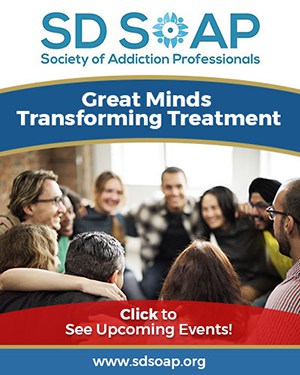The San Diego recovery community offers a plethora of benefits to individuals seeking to overcome substance abuse and addiction. One of the primary advantages is the extensive support network available, making room for people from all walks of life.
12-Step Meetings in San Diego
In San Diego, Alcoholics Anonymous (AA) and Narcotics Anonymous (NA) meetings come in a variety of formats to cater to the diverse needs of individuals in recovery. There are also “alternative” 12 step meetings such as SMART Recovery and Women in Recovery.
The most common type of meeting for 12 Step Groups is the open meeting, which welcomes anyone interested in learning about recovery, including friends, family members, and newcomers. Open meetings typically involve personal stories of addiction and recovery, providing insights and hope to those struggling with substance abuse.
While many recovery meetings occur on the beachside, at churches or rec centers, recovery-oriented clubs also host meetings. North Shores Alano Club (NSAC) in Pacific Beach hosts 30+ 12-step weekly meetings blocks from San Diego. Mira Mesa Alano Club (MMAC) offers a safe space for 35 Alcoholics Anonymous meetings each week and NA, Al-Anon, and other 12-step meetings.
Each of these clubs offers a variety of 12 step meetings, supporting individuals in recovery.
Other clubs are also in the area, and hundreds of AA and NA meetings are held every week. The San Diego recovery community comprises people from all walks of life. People in recovery can connect with others who have faced similar challenges, fostering a sense of camaraderie and mutual encouragement. This support network is crucial for maintaining long-term sobriety.
Healing Holistically In San Diego
The San Diego recovery community also emphasizes holistic approaches to recovery, helping their members work toward physical, mental, and spiritual well-being.
Many sober activities are available to help promote physical health, manage stress, develop healthy coping mechanisms, and find new interests and hobbies. Taking a holistic approach to healing ensures that recovery is not just about abstaining from substances but also about building a more fulfilling and balanced life.
Many recovery programs in the area incorporate outings and activities into their daily schedules, offering yoga, meditation, fitness classes, and outdoor excursions such as surfing in their weekly activities.
Questions to Ask When Choosing Recovery Housing
- Does the sober home provide treatment? If so, Is the house licensed and accredited? In California, sober living homes do not need to be licensed if they operate as a regular shared housing arrangement. However, if they provide treatment or recovery services, they must be licensed by the Department of Health Care Services (DHCS). Licensed facilities must comply with strict rules about staffing, resident care, and safety protocols.
- What rules do residents have to follow? Find out about curfews, visitor policies, and other house rules to ensure you can live with them.
- Are there regular drug and alcohol tests? Ask how often they conduct them to ensure a sober environment. Making sure other residents are drug-free contributes to a safer environment for all.
- What kind of support services are offered? See if they provide counseling, group therapy, or other support services to help you stay sober.
- What is the cost, and what does it include? Make sure you understand the cost of living there and what is included, such as meals, utilities, and activities.
- What is the staff-to-resident ratio? Find out how many staff members can support the residents and their qualifications.
- What are the amenities? Some sober homes will include amenities such as transportation to appointments or in-home services such as massage.
- What are the house’s policies on relapse? Learn about their approach to handling relapses to know how they support residents in such situations.
Take your time doing research when searching out a sober home situation. Ask if you can tour the house to see the living conditions and meet the residents and staff. Ask to meet current or former residents and ask for references.
Sober living is a great way to start living in recovery among peers. Every home has something unique to offer, so don’t hesitate to visit and learn more about their lifestyle and recommendations for newly sober people.
San Diego is a Wonderful Place to Set Down Roots
The San Diego recovery community is deeply rooted in the spirit of giving back and helping others. Many people who have successfully navigated their recovery journey after many years sober become mentors, sponsors, or cherished community participants.
This cycle of support and mentorship creates a robust and resilient recovery environment, a cornerstone of recovery communities.
Learn more about safe, sober housing options in the San Diego area for people who are new to recovery and ready to start living a sober life by exploring our directory of vetted sober communities in the region.
Contact us at 629-828-2001 to learn more about joining SOARR.





